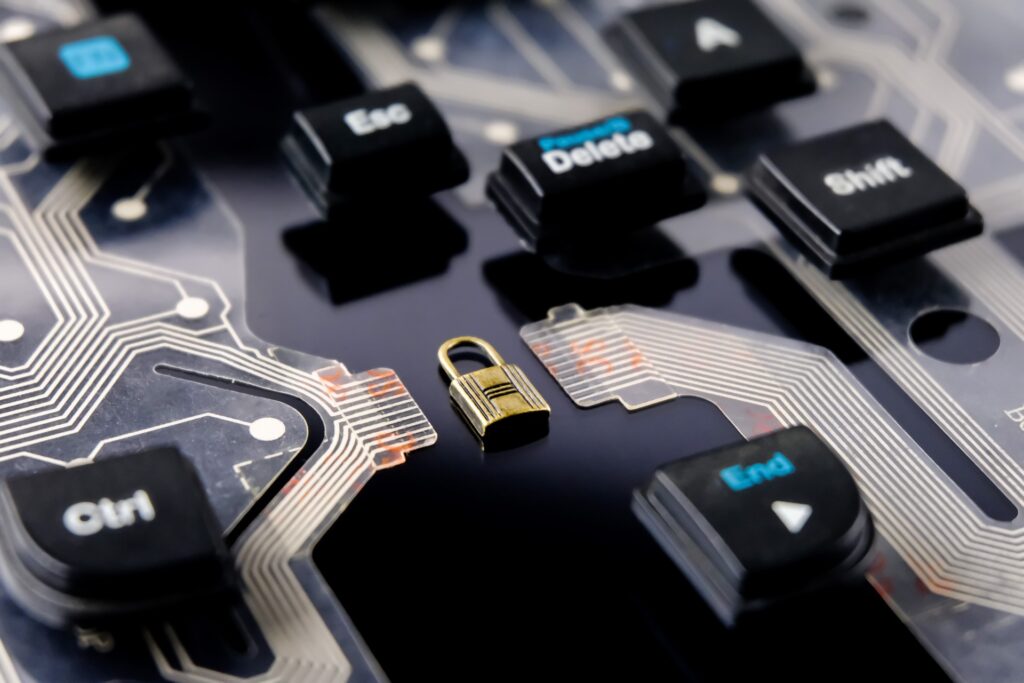Cybersecurity is the practice of protecting devices, networks, and sensitive information from unauthorized access, use, disclosure, disruption, modification, or destruction. It is critical for businesses of all sizes because they are increasingly reliant on technology and the internet to store and transmit sensitive information such as financial data, personal information, and confidential business plans.

Enterprises are particularly vulnerable to cyberattacks because they often have numerous employees, customers, and partners who may have access to their networks and systems. Additionally, they typically have valuable data and intellectual property that can be stolen or destroyed by cybercriminals.
To protect against cyber threats, enterprises may implement a variety of cybersecurity measures, such as firewalls, intrusion detection and prevention systems, and encryption. They may also conduct regular security audits and employee training to educate staff on how to identify and prevent cyberattacks. This may be either solved through inHouse Cybersecurity teams and departments or getting support from an expert provider that perfectly understand the company´s processes, culture and risks.
However, despite the implementation of these measures, cyberattacks on enterprises are becoming increasingly frequent and sophisticated, with attackers using advanced techniques such as phishing, malware, and ransomware to gain access to sensitive information. As a result, it is crucial for enterprises to continuously monitor and update their cybersecurity measures to stay ahead of evolving threats.
Cyberattacks on enterprises are becoming increasingly frequent and sophisticated
Cyberattack, the new problem or the new step on the tech pyramid?
If you receive a warning of a cyberattack, there are several steps you can take to protect your organization and its assets:
- Confirm the attack: Verify that the warning is legitimate and that an attack is actually taking place.
- Isolate the affected systems: Disconnect any affected systems from the network to prevent the attack from spreading.
- Assess the damage: Determine the scope of the attack and what assets have been impacted.
- Notify relevant parties: Inform your IT team, security team, and any relevant partners or authorities, such as law enforcement.
- Contain the attack: Implement any necessary measures to stop the attack from continuing, such as blocking malicious IP addresses or disabling compromised accounts.
- Perform a forensic investigation: Investigate the attack to determine how it was carried out and what data may have been compromised.
Implement remediation steps: Implement any necessary steps to repair the damage caused by the attack and restore normal operations. Review your incident response plan to identify any areas that can be improved, and update it accordingly to better prepare for future attacks. Additionally, analyze the attack to learn what could have been done differently to prevent it and to improve the incident response process.
It's important to remember that a cyberattack can happen to anyone, at any time, and it's better to be prepared in advance. Having an incident response plan, training your employees, and keeping your systems and software updated are some of the things that can help you to be prepared.
This all may sound very complex to be carried directly by the company, even for those companies with a Tech department. Preventing and solving cybersecurity problems require specialized and updated skills and methodologies, which often are mastered by companies or internal teams exclusively dedicated to this matter.
Companies could outsource the hiring of their cybersecurity teams or hire an expert provider who may assist them with consultancy, technical support, and training in prevention methodologies. If your business is prompt to face cyber risks do not hesitate to contact us for a customized consultancy, we are providers and allies of various companies regarding cybersecurity services and will be glad to work with you and your teams too.
Finally, government regulations, many industries are facing more strict regulations for data protection, like HIPAA for healthcare, PCI-DSS for the payment card industry, and GDPR in Europe. These regulations require organizations to have dedicated cybersecurity professionals to ensure compliance.
At Crear Digital we prepare your company for these digital mishaps that can delay your operations. Ask us how we can help you.




